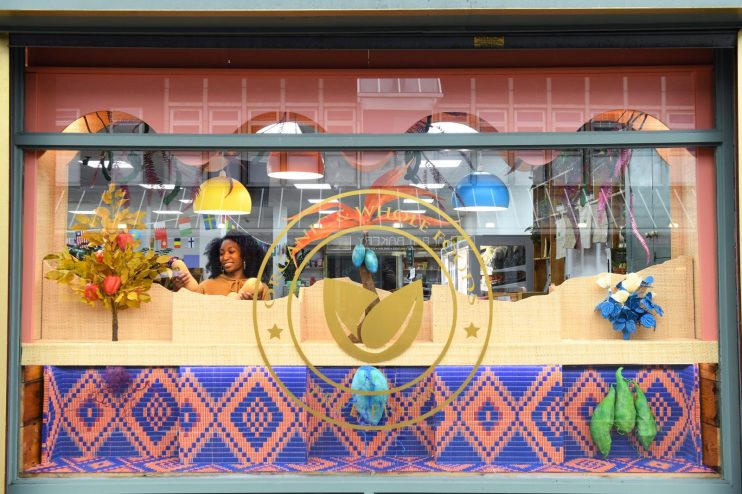Keep the dream alive, and support a female-led business during lockdown

When Kiera-Lorelle opened the doors to her new family business — Cinnamon Leaf foodhall in Tottenham, North London — she was full of hope: “It’s been a life-long dream of my mum’s to open a store.”
That was back in January. Needless to say, the months since haven’t been easy.
But Cinnamon Leaf has carried on thanks to loyal locals who stop by for coffee and Caribbean bananas. “It’s such a lovely community,” says Kiera. “People come in and bump into their friends.”
Small, female-led businesses like this add so much to our communities and to our economy. Yet all is not well for women entrepreneurs in the UK. As the pandemic rages on, new research shows that, despite their ingenuity and willingness to adapt, women have had to shut their businesses more often than men, and are burdened by more housework and childcare than their male counterparts.
The numbers come from an ongoing global study of small business — The State of Small Business Report — produced by Facebook for the World Bank and the Organisation for Economic Cooperation and Development. The study has surveyed small business owners around the world every month since the end of May — and the latest results tell a worrying story about the impact of Covid on female entrepreneurs.
Our research reveals that as the UK was engulfed by the pandemic, women-owned businesses were hit disproportionately hard. In July, only 73 per cent of such small businesses had reopened, compared to 85 per cent of those owned by men.
While we don’t yet know definitively why women-led businesses suffered more, there are a few factors to consider.
One is sector. Men are more likely to work in professional services, while women veer towards leisure services, hospitality and retail, meaning they have a greater chance of being affected by social distancing rules. Another factor is size: women’s businesses are smaller than men’s on average, potentially making it harder to deal with shocks.
There is another major element to consider, however. Our survey found that in the UK, one in four female business owners say they spend six or more hours a day on domestic responsibilities. Only one in 10 men who own businesses report spending that much time on the same.
Simply put, female entrepreneurs are hampered by housework and childcare responsibilities that their male counterparts often don’t have to deal with. Despite all the progress we’ve made in the name of equality, women are now working a double shift at home.
The good news is that, even with the difficulties they face, the ingenuity of female entrepreneurs continues to be an inspiration, as is their ability to adapt. Take selling online. Our research shows that around the world, women are 10 per cent more likely to move their business online than men. Faced with a sudden digital sea change, women have trimmed their sails and kept moving forward.
Of course, the storm isn’t over yet. And I am concerned for the millions of women out there who have thrown their heart, their talents, and in many cases their life savings into building a business that is now a hostage to circumstance.
But we can all do something to help. Here at Facebook, we’ve connected three women-led businesses across the UK (including Cinnamon Leaf) with designer Petra Storrs, renowned for decorating windows at Hermès and Selfridges, to transform their shop windows for the winter holidays.
Even as social distancing rules remain uncertain and in flux, I hope you get a chance to visit. And as you make purchases over the next several months — whether they’re basic necessities or Christmas gifts — think about the small businesses that could do with your support. One of the great rewards of shopping small is knowing that you’re helping to keep someone’s dream alive.
As Kiera-Lorelle told me when I visited her store this week, “it means a lot to us when people come in to support us.” Each customer truly does make a difference.
Main image credit: Doug Peters/PA Wire
